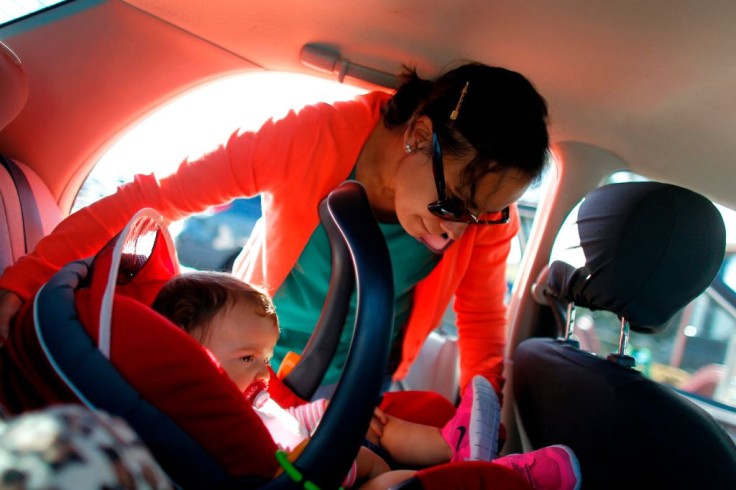
For many parents, car seat installation creates confusion and frustration because any setup mistake can impact a child's safety. On TikTok, a couple of videos have gone viral because of their valuable demonstration of the best way to install a car seat.
One TikTok video comes from @CarSeatInstallers, where a man showed that a car seat installation must allow the seat, not the child, to absorb the force of the ride. He said that some kids get cranky at the back of the car because their parents like to jam the equipment between the passenger's seat and the front seat.
Some parents think that doing this will secure the baby's car seat, but, as the man explained, when the equipment has no "give," the child will not enjoy the ride because he's absorbing all of the force.
Parents need to remember that there should be some space between the car seat and the front seat to avoid doing this. He demonstrates it clearly in his TikTok video.
@carseatinstallers Parents! Let your car seats absorb the force not your child ##learnontiktok ##carseatsafety ##carseat ##pregnancyjourney ♬ original sound - CarSeatInstallers
On the other hand, Mom Joni also shared a TikTok video demonstrating how to avoid a loose car seat that could be a major safety issue. As a certified Child Passenger Safety Technician, Joni provided two elaborate videos to inform parents what to check even if they are confident that they've successfully installed the equipment. Her sound advice has parents flocking to her account - @nosweatseatcheck - to express their gratitude.
@nosweatseatcheck May is CPST month! #carseatsafety #forwardfacing #installation #latch #toptether #momsoftiktok #dadlife #parenting ♬ Spongebob - Dante9k
@nosweatseatcheck May is CPST month! #carseatsafety #rearfacing #installation #latch #parenting #momsoftiktok #dadlife ♬ Taking Care of Business - LA Thunder
In America, each state has different laws regarding car seats or booster seats, but since 1985, the federal government generally mandated that children up to 8 years old or 65 lbs. in weight have to be strapped on for their safety. This equipment has been proven to help reduce injury or death in children in case of a car crash. However, keeping the kids safely tucked in also means that parents need to choose the right seat for their child's age, size, and weight, which is why you often see varieties of seats at stores. According to the American Academy of Pediatrics (AAP), infants and toddlers should have rear-facing models until they are big enough to be strapped on a different design. The Federal Motor Vehicle Safety Standard 213 determines if the seat passes the standards, and parents will usually find this on the tag or label. The tag also indicates the "highest weight or height allowed" for the particular model, which should help parents with their buying choices. When parents have picked out the right equipment, they should ask for a demonstration from the store. Some establishments do have certified safety technicians among their staff, whose job is to guide the parents. Undoubtedly, car seats can be expensive, so some families prefer to shop second-hand models. However, such a purchase might present many risks for the baby since the old seat could have missing parts or damage from an actual crash. The second-hand equipment might not also come with a manual, model number, and manufacturing date. Some parents might not be aware that there is an expiration date for this baby equipment. If a second-hand seat is more than six years old, it's best not to use this anymore. Equipment that was left in storage and hardly used, but passed its expiration date, may no longer be safe to use as well. Manufacturers are required by law to put the expiration date on the label. Related Article:
Dry Scooping Tiktok Challenge Risky for Kids, Doctors Warn ParentsImportance of Car Seat
Using Second-Hand Models